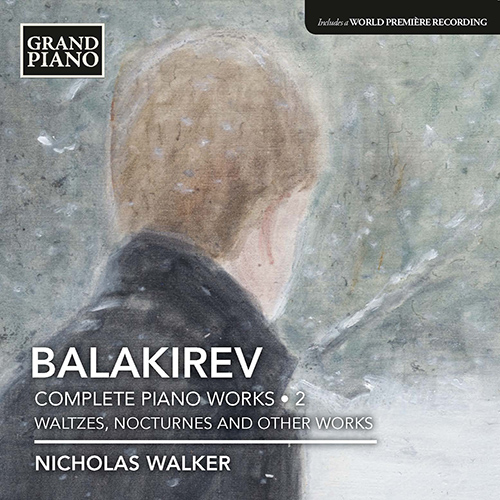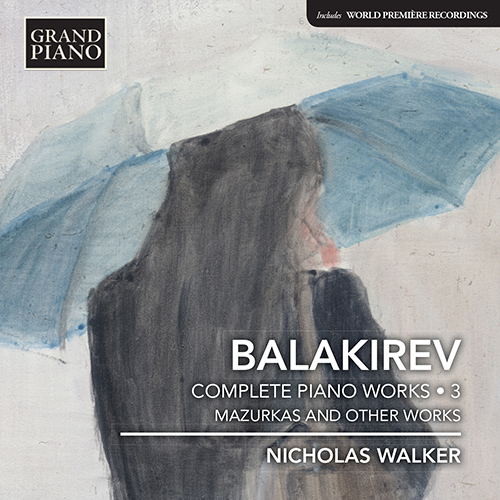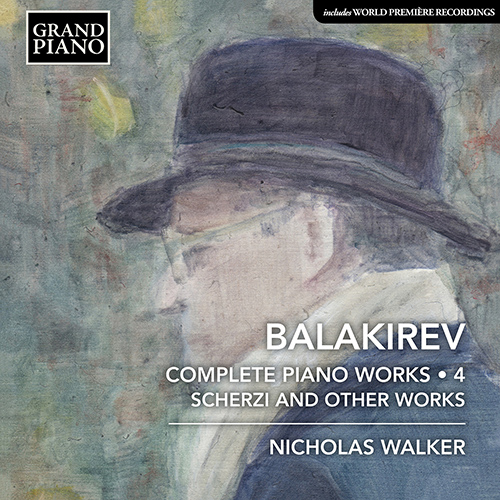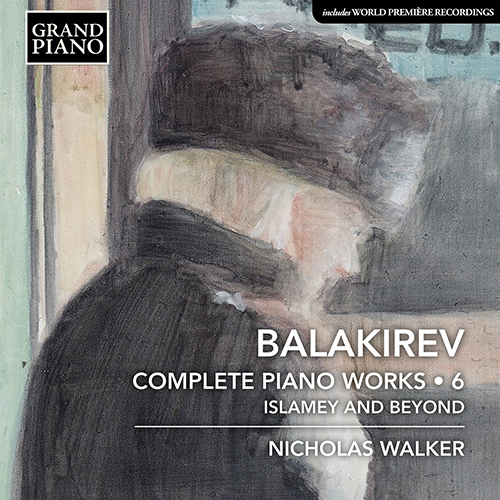
Mily Alexeyevich Balakirev (1837 - 1910)
A brilliant pianist, improviser, noted conductor and selfless champion of other composers, Balakirev is surprisingly little known today. Yet as leader of the Russian composers known as ‘The Mighty Handful’, Rimsky-Korsakov, Mussorgsky, Borodin and Cui, he strongly influenced not only their work but also that of Tchaikovsky, Debussy, Ravel and Stravinsky, setting the standard by which others were judged. For a variety of reasons, however, he neglected his own composing, some works existing for years only in his head as unwritten piano improvisations. In the 1870s he worked as a clerk for the Warsaw Railway, after suffering a number of setbacks which resulted in a deep depression; in 1883 he was appointed to the post of director of the Imperial Chapel Choir, but it came with many administrative duties so that by the time of his final creative flowering (1900–1910) many of his earlier champions had died, and Balakirev himself no longer appeared in public as a pianist. By the time he could devote himself to composition, his style was no longer at the cutting edge, and most of his output fell into obscurity almost as soon as it was written.
Balakirev was born in Nizhni Novgorod. His family was not wealthy, but a local landowner AD. Ulybyshev encouraged Balakirev’s musical education, even though he chose to study Mathematics at the University of Kazan owing to his family’s poverty. He dropped out after one year, but in 1855 Ulybyshev took him to St Petersburg, introducing him to the highest circles and enabling Balakirev to start his musical career. In addition to a large output of piano music and songs, Balakirev wrote two symphonies, several symphonic poems, works for piano and orchestra, choral music and incidental music for Shakespeare’s King Lear.
Listen to FROM RUSSIA WITH LOVE: RUSSIAN PIANO MUSIC on Spotify









 Grand Piano has gained a reputation for producing high quality recordings of rare keyboard gems. Dedicated to the exploration of undiscovered piano repertoire, the label specialises in complete cycles of piano works by many lesser-known composers, whose output might otherwise have remained unknown and unrecorded.
Grand Piano has gained a reputation for producing high quality recordings of rare keyboard gems. Dedicated to the exploration of undiscovered piano repertoire, the label specialises in complete cycles of piano works by many lesser-known composers, whose output might otherwise have remained unknown and unrecorded.






